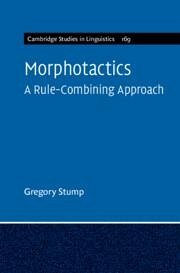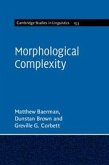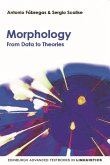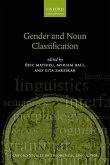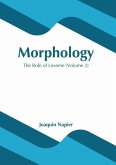"The study of morphology is central to linguistics, and morphotactics - the general principles by which the parts of a word form are arranged - is essential to the study of morphology. Drawing on evidence from a range of languages, this is a comprehensive and up-to-date account of the principles of morphotactic analysis. Stump proposes that the arrangement of word forms' grammatically significant parts is an expression of the ways in which a language's morphological rules combine with one another to form more specific rules. This rule-combining approach to morphotactics has important implications for the synchronic analysis of both inflectional and derivational morphology, and it provides a solid conceptual platform for understanding both the processing of morphologically complex words and the paths of morphological change. Laying the groundwork for future research on morphotactic analysis, this is essential reading for researchers and graduate students in linguistics, and anyone interested in understanding language structure"--
Hinweis: Dieser Artikel kann nur an eine deutsche Lieferadresse ausgeliefert werden.
Hinweis: Dieser Artikel kann nur an eine deutsche Lieferadresse ausgeliefert werden.

